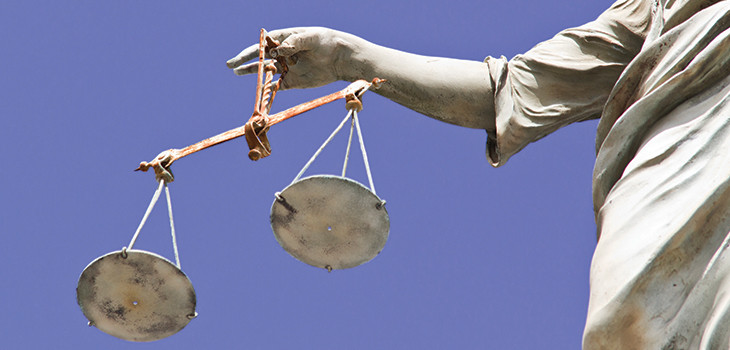*/

In December 2020 BAILII, the British and Irish Legal Information Institute celebrated its 20th anniversary. We are looking forward to continuing and enhancing our services. The announcements by the Ministry of Justice and The National Archives in June this year about a planned new service for ‘important’ judgments and ‘cases of legal significance’ from England and Wales have caused some confusion about BAILII’s ongoing role. This article outlines BAILII’s historic contribution to facilitating access to justice and our future plans.
BAILII has long played a key role in the international movement calling for free access to law as means to promote the rule of law and access to justice. For many years, we have campaigned for the need to improve access to judgment data and the information flow by which it reaches the public through more comprehensive, speedy and structured judgment data for the benefit of all users. BAILII loads new judgments within hours of receipt. Usage is anonymous, requires no log on or registration, and there are no cookies, trackers or analytics.
We will continue to play our part in ensuring that free legal information services are seen to be appropriately independent. BAILII will remain an independent charity and the largest free internet provider of primary legal materials in the United Kingdom. We take very seriously our role in helping people to understand and use the law. We are determined not only to ensure that public access to case law from jurisdictions throughout the UK and Ireland is maintained, but also to develop our service to help users, and their lawyers and advisers, to interpret content.
In addition to continuing to publish all our current range of materials, BAILII has been working on plans to add valuable additional content.
An important development is our evolving initiative to provide access to high-quality fully indexed legal commentary and academic analysis alongside and interlinked with primary materials. We look forward to discussions with blog authors, legal commentators, and academic writers to offer them an additional route to share their insights and reach wider audiences as this project develops.
BAILII is also updating and enhancing its OpenLaw service, liaising with academic specialists, to support legal education. The service identifies and links to judgments of leading cases by topic for law students. These judgments will include nutshell descriptions to assist in understanding at a glance the significance of the cases. An example is the updated list for torts. The project was originally funded by JISC, at the time the Joint Information Systems Committee of the Higher Education Funding Council, and continues with the assistance of the Institute of Advanced Legal Studies (IALS).
Part of our mandate is a commitment to support research in legal information. We sponsor an annual lecture by leading members of the judiciary and eminent academic lawyers, most recently Professor Richard Susskind. BAILII is also collaborating with an Oxford University research project team investigating the implications of AI for law. We expect that the findings of the research will assist MOJ/HMCTS and BAILII build robust data governance structures and inform future decisions on how data might be shared for AI applications and under what conditions.
The forthcoming creation of a government archive for data analysis and for future generations is a major step forward for England and Wales. It is one for which BAILII has long advocated and is actively supporting, while maintaining all of our own content and services.
Currently, judgments in England and Wales are distributed directly by judges to interested parties including publishers. The addition of a new publisher of judgments is always welcome but BAILII hopes that this new role for The National Archives will not reduce the range of recipients of this direct distribution, or adversely affect the speed or selection of cases made available for publication. This would compromise both independence and access to the law.
BAILII is grateful to all its stakeholders, including the Bar and the legal community more widely, for their continuing support for our free, easily accessible and independent service – and one we plan to enhance further still.


In December 2020 BAILII, the British and Irish Legal Information Institute celebrated its 20th anniversary. We are looking forward to continuing and enhancing our services. The announcements by the Ministry of Justice and The National Archives in June this year about a planned new service for ‘important’ judgments and ‘cases of legal significance’ from England and Wales have caused some confusion about BAILII’s ongoing role. This article outlines BAILII’s historic contribution to facilitating access to justice and our future plans.
BAILII has long played a key role in the international movement calling for free access to law as means to promote the rule of law and access to justice. For many years, we have campaigned for the need to improve access to judgment data and the information flow by which it reaches the public through more comprehensive, speedy and structured judgment data for the benefit of all users. BAILII loads new judgments within hours of receipt. Usage is anonymous, requires no log on or registration, and there are no cookies, trackers or analytics.
We will continue to play our part in ensuring that free legal information services are seen to be appropriately independent. BAILII will remain an independent charity and the largest free internet provider of primary legal materials in the United Kingdom. We take very seriously our role in helping people to understand and use the law. We are determined not only to ensure that public access to case law from jurisdictions throughout the UK and Ireland is maintained, but also to develop our service to help users, and their lawyers and advisers, to interpret content.
In addition to continuing to publish all our current range of materials, BAILII has been working on plans to add valuable additional content.
An important development is our evolving initiative to provide access to high-quality fully indexed legal commentary and academic analysis alongside and interlinked with primary materials. We look forward to discussions with blog authors, legal commentators, and academic writers to offer them an additional route to share their insights and reach wider audiences as this project develops.
BAILII is also updating and enhancing its OpenLaw service, liaising with academic specialists, to support legal education. The service identifies and links to judgments of leading cases by topic for law students. These judgments will include nutshell descriptions to assist in understanding at a glance the significance of the cases. An example is the updated list for torts. The project was originally funded by JISC, at the time the Joint Information Systems Committee of the Higher Education Funding Council, and continues with the assistance of the Institute of Advanced Legal Studies (IALS).
Part of our mandate is a commitment to support research in legal information. We sponsor an annual lecture by leading members of the judiciary and eminent academic lawyers, most recently Professor Richard Susskind. BAILII is also collaborating with an Oxford University research project team investigating the implications of AI for law. We expect that the findings of the research will assist MOJ/HMCTS and BAILII build robust data governance structures and inform future decisions on how data might be shared for AI applications and under what conditions.
The forthcoming creation of a government archive for data analysis and for future generations is a major step forward for England and Wales. It is one for which BAILII has long advocated and is actively supporting, while maintaining all of our own content and services.
Currently, judgments in England and Wales are distributed directly by judges to interested parties including publishers. The addition of a new publisher of judgments is always welcome but BAILII hopes that this new role for The National Archives will not reduce the range of recipients of this direct distribution, or adversely affect the speed or selection of cases made available for publication. This would compromise both independence and access to the law.
BAILII is grateful to all its stakeholders, including the Bar and the legal community more widely, for their continuing support for our free, easily accessible and independent service – and one we plan to enhance further still.



The Bar Council is ready to support a turn to the efficiencies that will make a difference
By Louise Crush of Westgate Wealth Management
Marie Law, Director of Toxicology at AlphaBiolabs, examines the latest ONS data on drug misuse and its implications for toxicology testing in family law cases
An interview with Rob Wagg, CEO of New Park Court Chambers
What meaningful steps can you take in 2026 to advance your legal career? asks Thomas Cowan of St Pauls Chambers
Marie Law, Director of Toxicology at AlphaBiolabs, explains why drugs may appear in test results, despite the donor denying use of them
Ever wondered what a pupillage is like at the CPS? This Q and A provides an insight into the training, experience and next steps
The appointments of 96 new King’s Counsel (also known as silk) are announced today
Ready for the new way to do tax returns? David Southern KC continues his series explaining the impact on barristers. In part 2, a worked example shows the specific practicalities of adapting to the new system
Resolution of the criminal justice crisis does not lie in reheating old ideas that have been roundly rejected before, say Ed Vickers KC, Faras Baloch and Katie Bacon
With pupillage application season under way, Laura Wright reflects on her route to ‘tech barrister’ and offers advice for those aiming at a career at the Bar